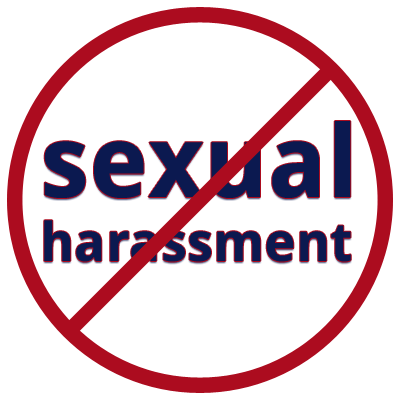
Sexual harassment is bullying or coercion of a sexual nature, or the unwelcome or
inappropriate promise of rewards in exchange for sexual favours. In
most modern legal contexts, sexual harassment is illegal.[1]
Although the concept of sexual harassment in the work place is not alien to
Nigeria, there is a dearth of reported cases on the subject. Reasons that might
be attributed to this include:
inappropriate promise of rewards in exchange for sexual favours. In
most modern legal contexts, sexual harassment is illegal.[1]
Although the concept of sexual harassment in the work place is not alien to
Nigeria, there is a dearth of reported cases on the subject. Reasons that might
be attributed to this include:
1. No precise provision in Employment
Relation laws bordering on sexual harassment in the work place;
Relation laws bordering on sexual harassment in the work place;
2. Victims of sexual harassment
not coming out to report the infringement.
not coming out to report the infringement.
The International Labour
Organization (“ILO”) in its publication on Declaration on Fundamental Principles and
Rights at Work[2] defined
sexual harassment as:
Organization (“ILO”) in its publication on Declaration on Fundamental Principles and
Rights at Work[2] defined
sexual harassment as:
“a sex-based
behaviour that is unwelcome and offensive
to its recipient.”
behaviour that is unwelcome and offensive
to its recipient.”
For sexual harassment to exist these two
conditions must be present.
conditions must be present.
Sexual harassment may take two forms:
1) Quid Pro Quo, when a job benefit – such as
a pay rise, a promotion, or even continued employment – is made conditional on
the victim acceding to demands to engage in some form of sexual behaviour; or;
a pay rise, a promotion, or even continued employment – is made conditional on
the victim acceding to demands to engage in some form of sexual behaviour; or;
2) hostile working environment in which the
conduct creates conditions that are intimidating or humiliating for the victim.
conduct creates conditions that are intimidating or humiliating for the victim.
Behaviours that qualifies as sexual
harassment include:
harassment include:
PHYSICAL Physical violence, touching, unnecessary proximity.
VERBAL Comments and questions about appearance,
life-style, sexual orientation, offensive phone calls.
life-style, sexual orientation, offensive phone calls.
NON -VERBAL Whistling, sexually-suggestive gestures,
display of sexual materials.
display of sexual materials.
The effects of Sexual harassment are both
societal and personal. Some common effects include:
societal and personal. Some common effects include:
·
Psychological suffering including humiliation, reduced motivation, loss
of self-esteem.
Psychological suffering including humiliation, reduced motivation, loss
of self-esteem.
·
Victims foregoing career opportunities, leaving employment or committing
suicide;
Victims foregoing career opportunities, leaving employment or committing
suicide;
·
Women’s undermined access to high-status and well-paid jobs,
traditionally male-dominated.
Women’s undermined access to high-status and well-paid jobs,
traditionally male-dominated.
The Way
Forward
Forward
·
Legal Framework against Sexual Harassment must be put
in place and clear institutions to enforce the regulations must also be defined
and set up.
Legal Framework against Sexual Harassment must be put
in place and clear institutions to enforce the regulations must also be defined
and set up.
·
Efforts must be made to create awareness amongst the
workforce on issues bordering on sexual harassment.
Efforts must be made to create awareness amongst the
workforce on issues bordering on sexual harassment.
·
Companies should endeavour to have standing sexual
harassment policies that will be known to all employees.
Companies should endeavour to have standing sexual
harassment policies that will be known to all employees.
In conclusion, it is
pertinent to state that the sexual harassment phenomenon is one that keeps
spreading like a wild fire leaving is ashes behind and it is high time our
lawmakers step up and pass laws to regulate this menace in the work place.
pertinent to state that the sexual harassment phenomenon is one that keeps
spreading like a wild fire leaving is ashes behind and it is high time our
lawmakers step up and pass laws to regulate this menace in the work place.
[2] http://www.ilo.org/wcmsp5/groups/public/—ed_norm/—declaration/documents/publication/wcms_decl_fs_96_en.pdf

Busayo Adedeji
Regulatory Compliance & Commercial law
advisor
advisor
Busayo advises clients on corporate immigration issues, advising clients on employment and labour law issues, ensuring that clients are in line with regulatory compliance rules, civil litigation etc
